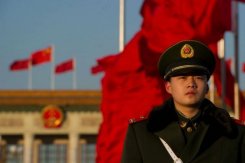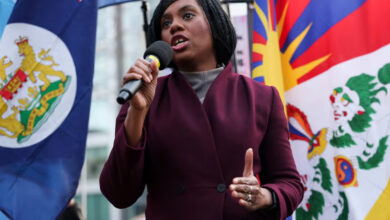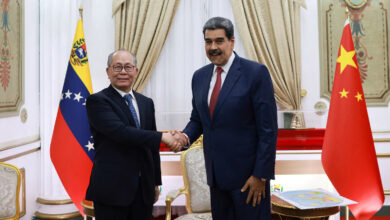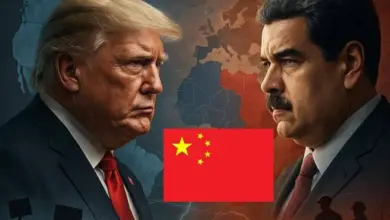
China's ruling Communist Party on Wednesday closed a pivotal congress that approved a new leadership committee, putting Vice President Xi Jinping on course to take power in a landmark transition.
"I now announce that the 18th Chinese Communist Party Congress has come to a victorious conclusion," President Hu Jintao, the party leader, told some 2,200 delegates assembled in the cavernous Great Hall of the People in Beijing.
The main business of the week-long congress, which is held every five years, had been to select a new circle of leaders at a time when China faces major economic challenges and growing scrutiny from its citizens.
The gathering is by far China's most important political event as it chooses who leads the party and nation, and this year's meeting is expected to lead to Xi's selection as the country's chief for the next decade.
Xi took a widely expected step forward by being re-named Wednesday to the 200-member Central Committee at the congress.
The development was singled out in a report by state-run Xinhua news agency, suggesting Xi was firmly positioned to be announced national leader on Thursday as expected.
In the same dispatch, Xinhua noted that Vice Premier Li Keqiang, who is tipped to become China's next premier, was also appointed to the central committee.
The agency also focused on five other officials believed tipped for possible inclusion in the Politburo Standing Committee — China's highest decision-making body and which would be headed by Xi — suggesting they had moved forward.
The new standing committee, now at nine members, is due to be unveiled on Thursday.
Under the party's Leninist structure, top leadership posts are decided in back-room political deals between factions that break down largely on regional and patronage lines.
Xi's ascension has been expected since 2007, when he was given a position on the standing committee. That indicated his status as heir apparent to current President Hu, who officially relinquishes party control this week.
Xi is expected to complete his takeover in March when China's rubber-stamp legislature officially names him the nation's president, while Li is strongly believed destined for the premiership, replacing incumbent Wen Jiabao.
They are expected to serve two five-year terms.
They will take over at an uncertain time, when China's powerhouse economy is suffering a rare slowdown, undercutting the party's key claim to legitimacy — continually improving the livelihoods of the country's 1.3 billion people.
Localized unrest is widespread in China, typically sparked by public anger over corruption, government abuses or the myriad manifestations of anger from the millions left out of the country's newfound prosperity.
Anti-Chinese unrest in ethnic Tibetan areas also has flared with a spate of self-immolation protests over the past week.
In a speech opening the congress, Hu warned the party, in power since 1949, must address festering problems of corruption, environmental degradation, and calls for more political freedoms.
Widespread graft in particular, could prove "fatal" to the party, he said.
Beijing also employs a huge censorship apparatus to snuff out — not always successfully — anger at the government expressed by hundreds of millions of users of bustling social media sites.
The run-up to this year's congress was further unsettled by the scandal surrounding Bo Xilai, a former rising political star whose ambitions were torpedoed this year when his wife was given a suspended death sentence for the murder of a British businessman.
Battening down for the congress, authorities have flooded central Beijing with security, and placed hundreds of activists under house arrest, rights groups say.




